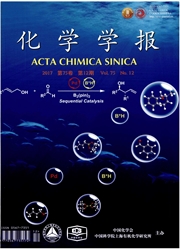

 中文摘要:
中文摘要:
选用碳酸盐矿化菌(芽孢杆菌系),分别研究了不同浓度细菌液、细菌体及其分泌物对碳酸钙晶体形成的影响.研究表明,细菌液浓度越高,控制碳酸钙晶体形貌作用越显著;细菌体为碳酸钙结晶提供异相成核点而对形貌并没有实质影响;细菌分泌物可诱导出球形、纺锤形等多种形态亚稳态球霰石;在微生物环境的长期作用下可形成有机-无机复合碳酸钙硬质膜.通过对电导率测定结果和碳酸钙红外图谱分析得出,生物有机质分子链的极性基团(COOH,C=O等)与Ca^2+产生静电、配位等一系列作用,调控晶体的生长.本研究对于微生物诱导碳酸钙的工程性应用,如混凝土微裂缝修复、古建筑表面防护处理、微纳米碳酸钙颗粒制备等具有一定指导意义.
 英文摘要:
英文摘要:
Carbonate-mineralization microbe (Bacillus) was chosen to study the influences of concentration of bacteria solution, bacteria body and bacterial secretion on calcium carbonate crystal formation. Results showed that the effect was stronger as the concentration of bacteria increasing; the crystals' form could not be affected by bacteria body only, but the bacterial secretion could induce the formation of polymorphic (e.g. spherical and spindle) metastable vaterite; inorganic-organic composite CaCO3 film formed under long-term effect by microbe. Based on the results of solution conductivity and FT-IR spectra of CaCO3 crystals, it could be concluded that there were electrostatic and coordination interaction between polar groups (COOH, C =O) in protein molecule and Ca^2+. The results are useful for engineering application, such as repairing micro-crack on concrete surface, protecting old building surface and producing micron and nano calcium carbonate grains.
 同期刊论文项目
同期刊论文项目
 同项目期刊论文
同项目期刊论文
 期刊信息
期刊信息
